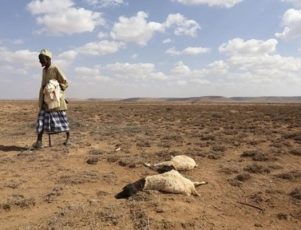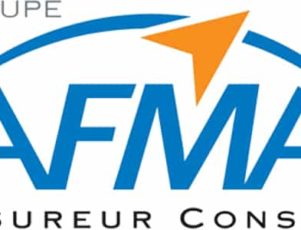The credit insurer Coface says only four African countries offer an “acceptable” average probability of corporate default.
Seven African countries have seen increased risk of default while only one has improved in the past year, according to a new report by the credit insurer Coface.
Only four African countries – Botswana, Mauritius, Morocco and Namibia – received an A rating from Coface, signifying an “acceptable” average probability of corporate default.
Seven countries were rated B with a “significant” average probability of default. The remaining 32 countries rated a C or a D, reflecting high or very high probability.
Ivory Coast was the only African country rated as improving, although Coface put it on a positive watch rather than a full upgrade. Coface downgraded risk ratings for Algeria, Gabon, Madagascar, South Africa, and Tanzania, while Zambia and Namibia were placed on a negative watch.
Oil-dependent economies see increased risk
The oil glut figured heavily in Coface’s downgrades for Algeria and Gabon.
Algeria’s rating went from A4 or a “quite acceptable” probability of default, which denotes some economic weakness, to B, a “significant” probability reflecting an uncertain economic and financial outlook.
Algeria’s oil and gas revenue dropped 40 percent last year, forcing the government to cut spending, raise fuel prices and halt major projects. The government, which draws 60 percent of its funding from energy revenues, recently turned to China to finance several infrastructure projects, including a new port.
Algerian economy will expected to slow
 Coface said weak oil and gas prices would continue to slow the Algerian economy.
Coface said weak oil and gas prices would continue to slow the Algerian economy.
“Algeria remains highly dependent on the energy sector which accounts for 30 percent of its GDP. The problems faced by the hydrocarbon sector due to its lack of competitiveness and the obsolescence of its production equipment lead to the conclusion that if the oil market remains low Algerian energy production performance will stay weak in 2016.”
Gabon’s rating dropped from B to C, denoting a “high” average probability of default.
Like Algeria, the country has seen its oil revenue drop dramatically and its economic growth decline sharply. The report said economic activity was expected to “pick up as of 2016 thanks to election spending, the natural resources sector (agri-business, gold and manganese mines, wood processing) and the services sector.”
Global oil prices may drop further
Oil-dependent economies face more challenges in the coming year.
According to the report, global oil prices may decline by another $5 to $15 per barrel in the coming year. Non-OPEC production will decline, particularly U.S. shale oil, the report said. However, with economic sanctions lifted, Iran will bring additional oil to market – it has 30 million barrels in reserve and could increase production to 700,000 barrels a day.
South Africa risk “significant”
In South Africa, the report cites the nation’s recent financial crisis, higher interest rates, government deficits and political instability as factors. South Africa’s rating went from A4 or a “quite acceptable” average probability of default, which denotes some economic weakness, to B, “significant.”
South Africa’s worsening economic was thrown into an uproar late in 2015 when President Jacob Zuma abruptly fired a respected finance minister and then fired the replacement amid public protests.
With the value of the rand plummeting, South Africa worst drought in decades is putting even more pressure on the nation’s economy. The report said “agriculture, which was badly hit by drought in 2015, could again suffer as a result of El Niño in 2016.”
Tanzania, Madagascar also downgraded
Tanzania was downgraded from B to C, or “high” probability of default.
The east African nation has in the midst of a political standoff that has disrupted trade for several months. It began after the mainland government annulled an election in semi-autonomous Zanzibar, which the opposition party claimed to have won. New elections are planned in February but the opposition has threatened a boycott.
Madagascar has also suffered political unrest since a coup in 2009. Its rating went from C to the lowest possible grade, D, signifying a “very high” average probability.
The report said Hery Rajaonarimampianina, who took power in the coup and was democratically elected president in 2013, “lacks the support for implementing reforms, with popular discontent taking the form of increasing numbers of protest movements and strikes.”
Most African countries draw poor ratings
Twelve other African countries are rated D. They are: Burundi, Central African Republic, Chad, the Democratic Republic of Congo, Eritrea, Guinea, Liberia, Malawi, Mali, Sudan and Zimbabwe.
In addition to Tanzania and Gabon, 17 countries are rated C: Angola, Burkina Faso, Cameroon, Congo, Djibouti, Ethiopia, Ghana, Ivory Coast, Mauritania, Mozambique, Niger, Nigeria, Rwanda, Sao Tome, Togo, Uganda and Zambia.
In addition to Algeria and South Africa, five countries are rated B: Benin, Cape Verde, Kenya, Senegal, and Tunisia.
Four nations offer “acceptable” risk
Of the four countries that received an A rating, Morocco and Botswana were rated A4 – “quite acceptable” probability – while Namibia and Mauritius got a higher A3 rating – “acceptable” probability.
In the Middle East, Israel, Kuwait, Oman, Qatar, Saudi Arabia, and the United Arab Emirates received A ratings while Bahrain and Jordan were rated B. Coface gave C ratings to Egypt and Lebanon. Iran, Iraq, Libya, Syria and Yemen were rated D.
Globally, Coface forecasts a gradual continuing economic recovery in the euro zone.
“However, cheap oil, the weak euro, ad the slow decline in unemployment should not detract from the many sources of possible risk this year, with political risk foremost among them,” the report said.
While advanced economies should experience moderate growth this year, “it will not be enough to restart global growth this year.”
The report underscores the risks as more investors turn their attention to the continent. Despite the challenges, investor interest in Africa has grown in the past decade, with an estimated $4 billion raised in 2014. Private equity investment in Africa amounts to about 1 percent of the global total.
Read more


 Coface said weak oil and gas prices would continue to slow the Algerian economy.
Coface said weak oil and gas prices would continue to slow the Algerian economy.